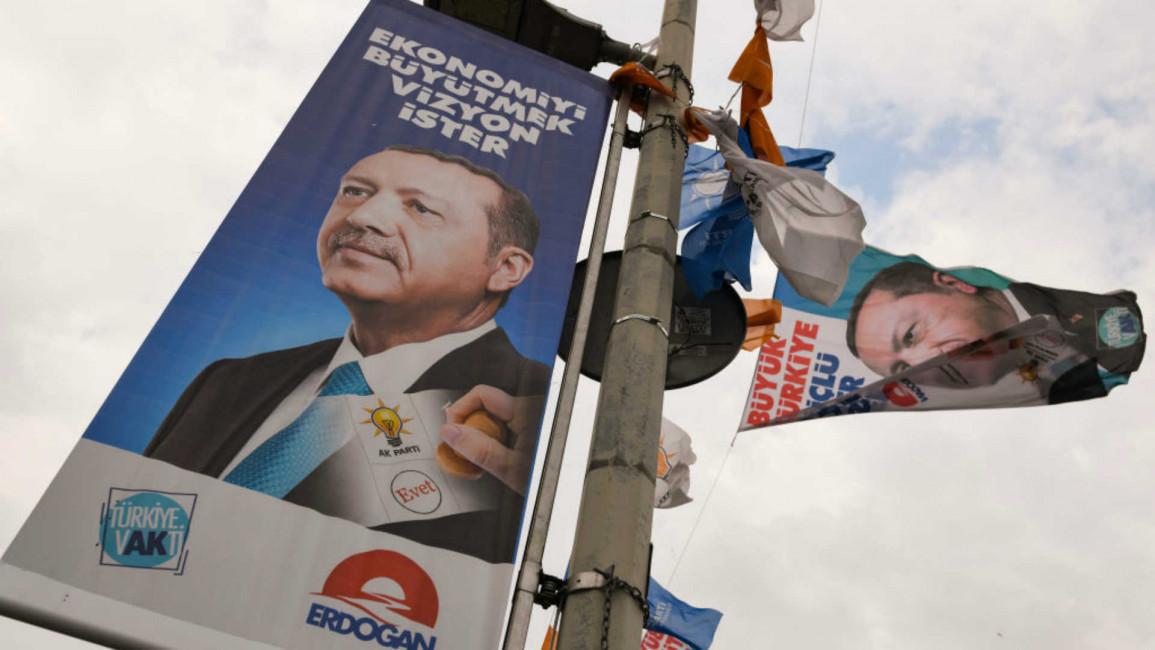Turkey confirms ban on pro-Kurdish elected officials
Turkey's Supreme Electoral Council on Thursday upheld a ban on candidates from a pro-Kurdish party taking office after they won local elections, state news agency Anadolu reported.
The council, known by its Turkish initials YSK, last week decided to bar the candidates from taking up their posts because they were on a list of people fired from public office after a 2016 failed coup.
The pro-Kurdish Peoples' Democratic Party (HDP) had demanded the ban be annulled because the same electoral authority already allowed the candidates to run in the March 31 election.
Anadolu said the demand for the six districts in the predominantly Kurdish southeast had been rejected, which means the second place candidate takes up the post. In some of the districts it will be a candidate from President Recep Tayyip Erdogan's ruling AKP.
A HDP source confirmed the decision to AFP and said the party could not appeal. It had called the measure a blow to Turkish democracy.
Erdogan's AKP won most seats nationwide in the municipal election, but in a setback lost the capital Ankara and Istanbul, the country's largest city and its economic hub.
Erdogan has often accused the HDP of ties with PKK Kurdish militants fighting a decades-long insurgency against the state, a charge the party denies.
Hundreds of HDP members and around 40 of its mayors are currently in detention, accused by authorities of ties to the PKK, listed as a terrorist organisation by Turkey and its Western allies.
The ban on the candidates is related to a decree to fire or suspend more than 140,000 people from the civil service or public institutions after the 2016 failed overthrow of Erdogan.
Ankara blames the coup attempt on US-based Muslim preacher Fethullah Gulen. Gulen denies Ankara's accusations.
The majority of those sacked including teachers are accused of links to Gulen but several thousand are suspected of Kurdish militant links.
After the failed coup, the government installed local administrators to replace 95 of the 102 municipalities held by pro-Kurdish mayors elected in 2014.
While officials justified the purge by saying it was needed to clear out Gulen supporters, who are said to have slowly taken over many public sector institutions, critics say it was a crackdown on dissent in general.
Some of those fired included HDP politicians and public sector workers accused of having ties to the PKK.
Mayors who were fired by the government under the 2016 emergency decree were replaced by government-appointed "trustees".
Although no objections were made to the former mayors running in March's local elections before they took place, Turkey's electoral authority later decided to ban those who had won in six districts from taking up their posts.
The runners-up - all representatives of the ruling Justice and Development Party (AKP) - are expected to take their place as mayors of those districts.
HDP candidate for Baglar district Zeyyat Ceylan, formerly a teacher fired from his position under the 2016 emergency decree, was elected mayor with 70 percent of the vote. The second-place candidate from the AKP Huseyin Beyoglu earned 25 percent of the vote.
"This is not the law, this is oppression," Ceylan told BBC Turkish.
Follow us on Twitter: @The_NewArab



